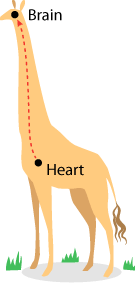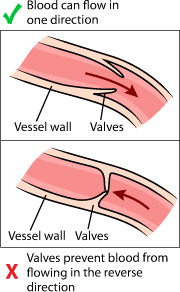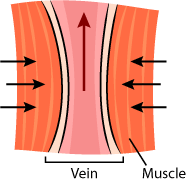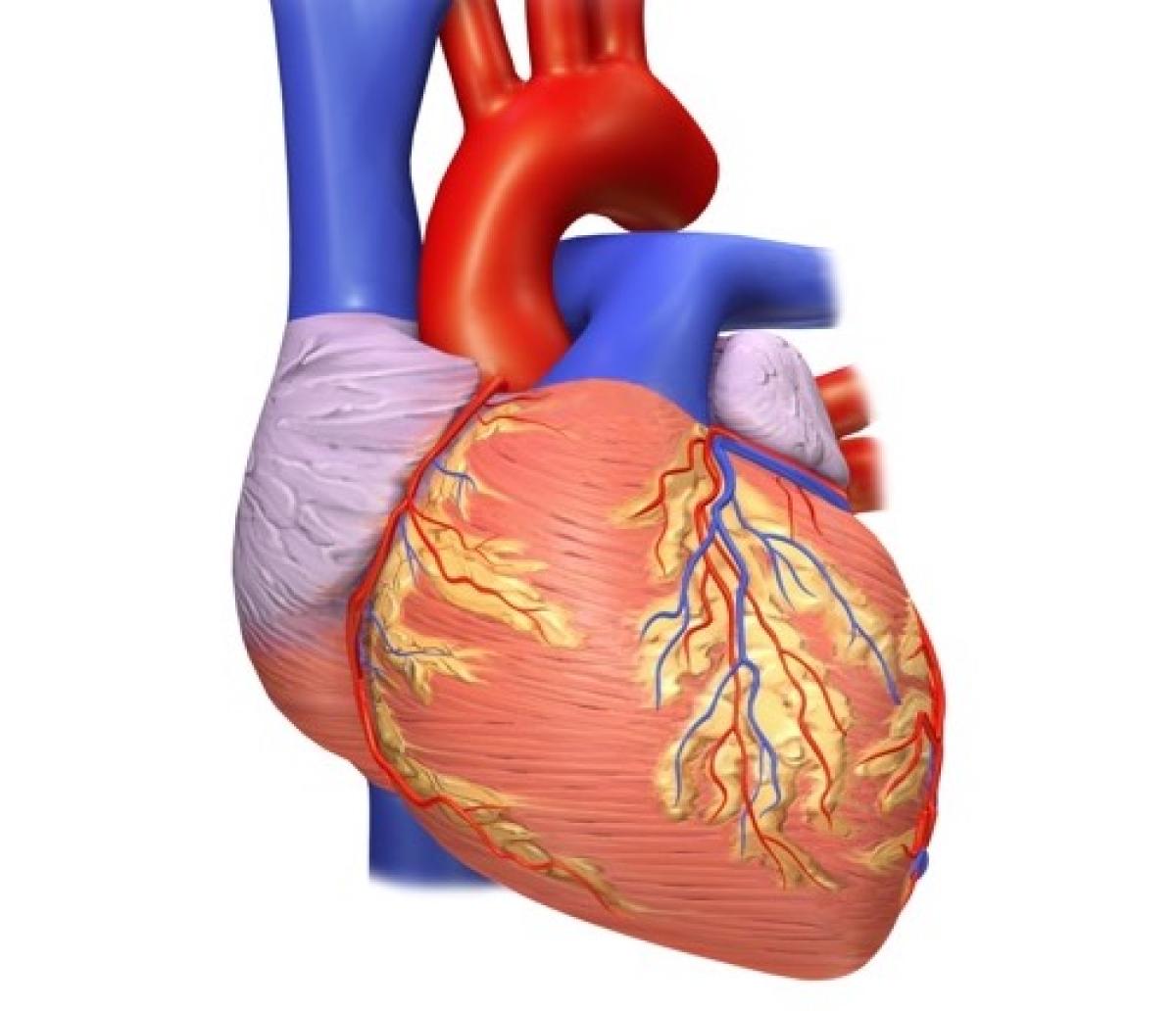Hard-Working Hearts

Our bodies are used to working under the force of gravity. Your heart, for example, has to work hard to get blood and the oxygen it carries to move upward, against gravity, to your brain.
Our brains and hearts are pretty close together, but let’s imagine the effects of gravity on blood moving around in a giraffe. The giraffe has to pump blood from its heart all the way up its long, long neck to reach its brain. This requires a lot of pressure, which is created by the beating of the heart.
There are also special structures in the blood vessels called valves that help keep blood moving in only one direction. The blood that moves down from the heart into the legs has to move up to get back through those long giraffe legs to reach the heart again.

Far away from the heart, blood pressure is low, so these movements of blood against gravity are often helped by moving muscles.
When leg muscles contract and squeeze, it helps move blood up through the veins, like when you squeeze on the end of a tube of toothpaste. In this way, and with our blood vessel valves helping, muscles can help return blood from the legs to the heart.
Lost in Space
Without gravity, the heart doesn’t need to work so hard to pump blood around the body. In space, it is easier to pump blood upwards, from the heart to the brain. But without blood being pulled down, it doesn’t go into the legs as well, and more stays in the heart. The heart actually swells because there is so much blood in it.

After several days in space, the heart gets used to doing less work and it starts to shrink because it doesn’t have to pump blood up against the force of gravity. While on Earth having a weak heart can be bad, a weaker heart in space works just as well as a stronger heart on Earth.
Additional images via Wikimedia Commons. External view of heart by Blausen Medical Communications, Inc., Dcoetzee.
Read more about: Spaced Out Physiology
Bibliographic details:
- Article: Hard-working Hearts
- Author(s): Dr. Biology
- Publisher: Arizona State University School of Life Sciences Ask A Biologist
- Site name: ASU - Ask A Biologist
- Date published: 8 Dec, 2011
- Date accessed:
- Link: https://askabiologist.asu.edu/hard-working-hearts
APA Style
Dr. Biology. (Thu, 12/08/2011 - 13:37). Hard-working Hearts. ASU - Ask A Biologist. Retrieved from https://askabiologist.asu.edu/hard-working-hearts
Chicago Manual of Style
Dr. Biology. "Hard-working Hearts". ASU - Ask A Biologist. 08 Dec 2011. https://askabiologist.asu.edu/hard-working-hearts
Dr. Biology. "Hard-working Hearts". ASU - Ask A Biologist. 08 Dec 2011. ASU - Ask A Biologist, Web. https://askabiologist.asu.edu/hard-working-hearts
MLA 2017 Style

The heart is also a muscle that goes through some changes when in the weightlessness of space.
Be Part of
Ask A Biologist
By volunteering, or simply sending us feedback on the site. Scientists, teachers, writers, illustrators, and translators are all important to the program. If you are interested in helping with the website we have a Volunteers page to get the process started.

